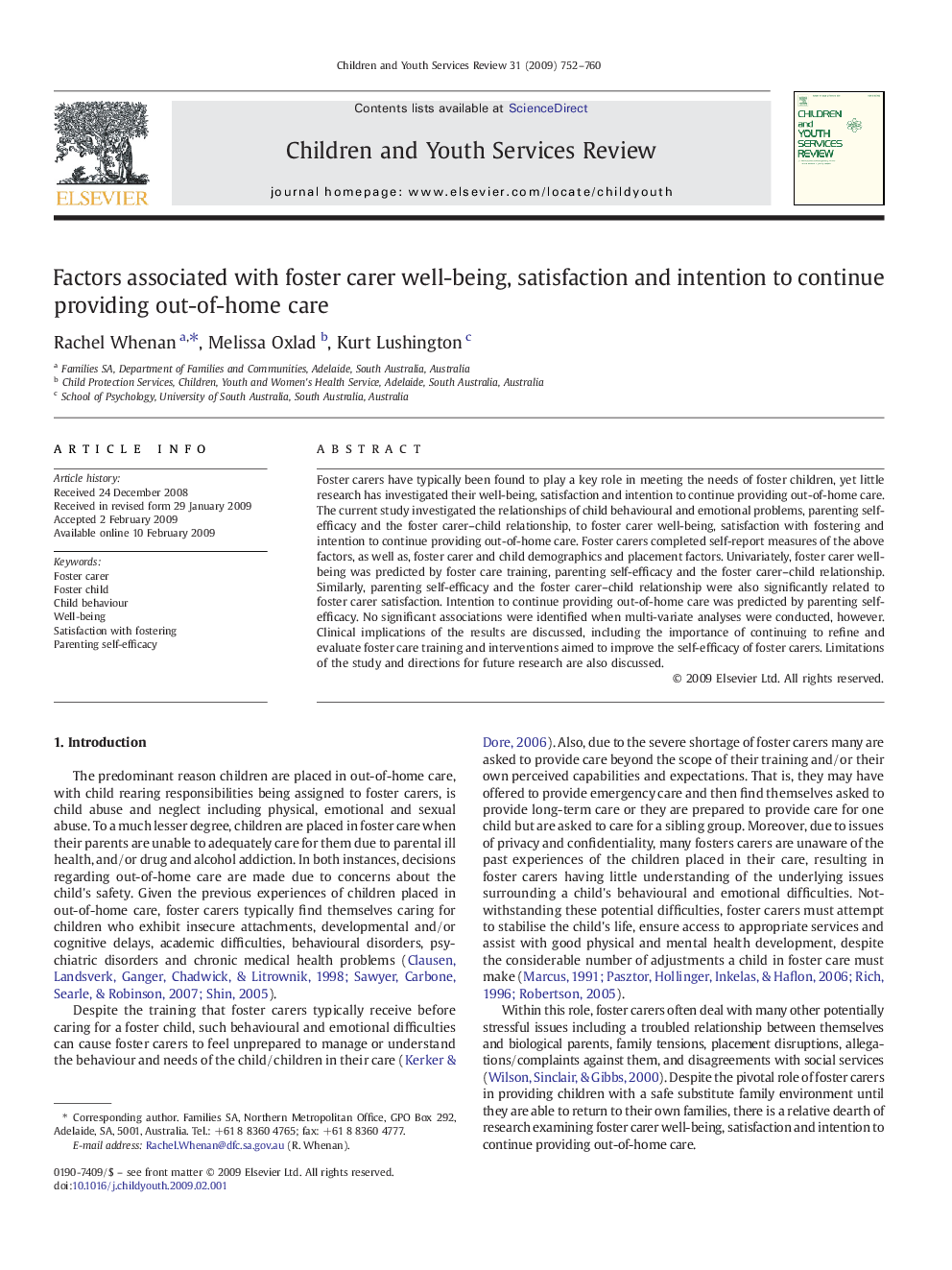| Article ID | Journal | Published Year | Pages | File Type |
|---|---|---|---|---|
| 346970 | Children and Youth Services Review | 2009 | 9 Pages |
Foster carers have typically been found to play a key role in meeting the needs of foster children, yet little research has investigated their well-being, satisfaction and intention to continue providing out-of-home care. The current study investigated the relationships of child behavioural and emotional problems, parenting self-efficacy and the foster carer–child relationship, to foster carer well-being, satisfaction with fostering and intention to continue providing out-of-home care. Foster carers completed self-report measures of the above factors, as well as, foster carer and child demographics and placement factors. Univariately, foster carer well-being was predicted by foster care training, parenting self-efficacy and the foster carer–child relationship. Similarly, parenting self-efficacy and the foster carer–child relationship were also significantly related to foster carer satisfaction. Intention to continue providing out-of-home care was predicted by parenting self-efficacy. No significant associations were identified when multi-variate analyses were conducted, however. Clinical implications of the results are discussed, including the importance of continuing to refine and evaluate foster care training and interventions aimed to improve the self-efficacy of foster carers. Limitations of the study and directions for future research are also discussed.
